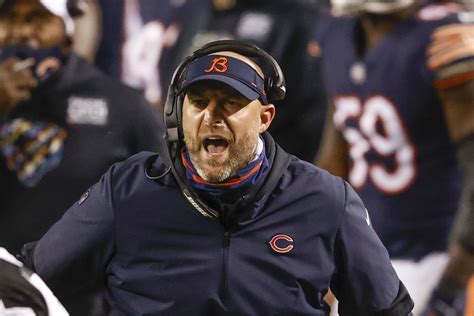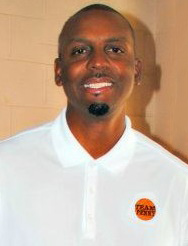A Quote by Storm Saulter
You can rely on your team to do their jobs, but you have to carry the torch and do anything you need to, not just to shoot and finish, but to get the film seen. You have to know within yourself that you're going to have to take this. Don't sit back and think other people in your team are going to make it happen now because you've done your part. You have to carry that torch, and no one is going to care as much as you do, and nobody is going to live with it as long as you are because it's your film.
Related Quotes
You can't just say, 'This team's going to win,' or 'This team's going to lose.' Anything can happen. So what you can control is winning your game as much as possible. If you don't do that, and then the other team has a chance to lose, and they lose, and you didn't go about it the right way, now you just let that slip.
Doing your best, you are going to live your life intensely. You are going to be productive, you are going to be good to yourself, because you will be giving yourself to your family, to your community, to everything. But it is the action that is going to make you feel intensely happy. When you always do your best, you take action.
What I mean by the common good is that we understand we're all part of something bigger than ourselves, that we live in societies together and must help take care of one another because you never know when you're going to need to be taken care of by others. And it's not enough to say that your family or your church is going to take care of you. Societies are collective entities, we're meant to be connected to one another; the function of government is to administer that connection.
When a film is reviled, you open a film and people say "Oh, it's the stupidest thing, it's the worst movie." You think: oh, nobody's going to ever speak to you again. But, it doesn't happen. Nobody cares. You know, they read it and they say "Oh, they hated your film." You care, at the time. But they don't. Nobody else cares.
I could've had moments when I could've said, "You know what? Let me make another film; this is taking a long time to get distributed." It can be difficult to stay passionate. You have to be that passionate and be prepared for it to get what it deserves. Make sure you have a really good team going in at the beginning and don't have people in your team that aren't there 100%.
We had this idea, and I think a lot of people did going in, that you can make some short film and it's going to get industry attention and that's going to be your thing. And it was only later on at school that we realized that's very rare that a short film is going to capture the attention of anyone.
Your life experience will never far exceed the expectations of your peers, because to stay connected to them there is an unconscious contract that says we're going to be within this range of each other. Now, on the other hand, if for some reason your friends have a higher expectation for life than you do, just to stay on the team you've got to raise your standard.
I would encourage people to realize that you don't have to panic if you're not part of a mainstream, or if you find yourself outside the flow. If it doesn't suit you, don't go along with it. Just sit it out and get your stuff done. Don't just sit moaning or getting drunk—I spent some years doing that. But if you can just come up with something of your own, however minor it is, that's going to be easier to live with when you're at the end of your life.
I don't make movies. I don't feel that I have to have artistic control. Part of this comes from the fact that the book lives on no matter what Hollywood does to your novel in terms of a film. Now, you try to be careful who you allow to do your film because nobody wants their novel to become a turkey movie. But, on the other hand, it is a crapshot anyway, because even the best people can make a bad film.
Don't eat the pizza; get lots of sleep - you have to take care of yourself. It's about being your tip top self at all times, and if you are unhealthy, or you're sick, or you don't feel good, even it's just because you're sluggish, you're not going to make it because you're not going to be able to react to things.
If you're consumed only with the big dream, you're going to die because you won't be able to feed yourself or you're going to be losing your job, so you'll just be sitting in your room dreaming, but if you're only holding onto the crap jobs that keep you just above of the water you're going to be unhappy. You're going to be burnt out, washed out.
Now everyone's main objective of taking photographs is to have a photograph for Twitter or Facebook. I find that troubling. If you have an opportunity to meet the Dalai Lama, don't work out your camera or iPhone issues. Sit and a listen to what the man is saying, because nine times out of 10, you're not going to look at that photo. You're not going to look at the video. As a photographer, I don't carry a camera. I have my iPhone, but I don't carry a camera. I want to live.



































